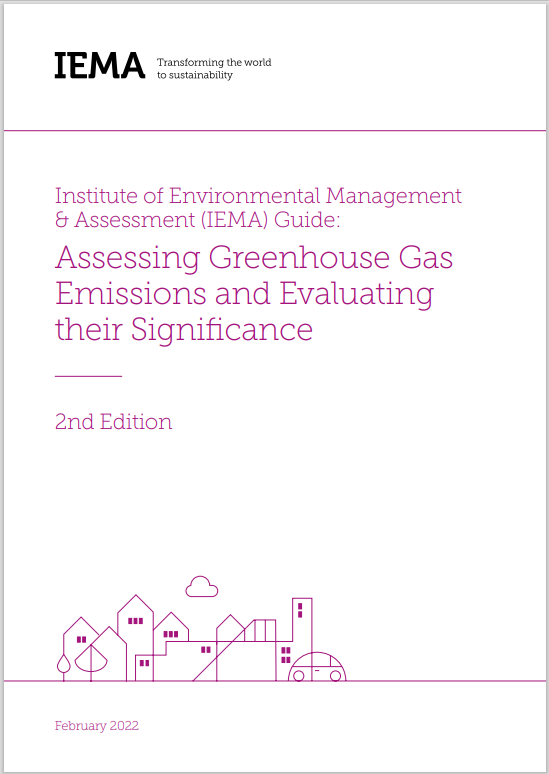The aim of this guidance is to assist GHG practitioners with addressing GHG emissions assessment, mitigation, and reporting in statutory and non-statutory EIA. It is a revision of the 2017 IEMA guidance on Assessing Greenhouse Gas Emissions and Evaluating their Significance. It complements IEMA’s latest guide on Climate Change Resilience and Adaptation published in 2020 and builds on the Climate Change Mitigation and EIA overarching principles.
The requirement to consider this topic has resulted from the 2014 amendment to the EIA Directive (2014/52/EU), as transposed into UK and devolved legislation through instruments such as the Town and Country Planning (Environmental Impact Assessment) Regulations 2017 and the Infrastructure Planning (Environmental Impact Assessment) Regulations 2017.
A lot has changed since 2017. Climate change has moved up the national and international agenda with local authorities across the UK declaring a climate change emergency. The UK’s legally binding Climate Change Act 2008 was amended in 20197 in response to the Paris Agreement, setting a new and challenging target to reduce UK GHG emissions to net-zero by 2050, accounting for residual emissions which are offset. Devolved administrations in Scotland and Wales have also set net-zero targets. In December 2020, the UK Government’s independent advisors, the Climate Change Committee (CCC), set the sixth carbon budget at 965 million tCO2e from 2033 to 2037, which has since been enshrined into law. There is a distinct requirement for deeper cuts in emissions across all sectors of the economy to meet the net-zero target according to the CCC.
For planners, developers, regulators and impact assessment professionals working with, or commissioning, GHG impact assessment, this publication provides updated and improved guidance, developed by leading practitioners from the past 5 years of practice on complex projects. The guidance builds on the previous IEMA guidance and reinforces the need to use competent experts for specialist topics such as GHG assessment.
Click here to download the guide.


